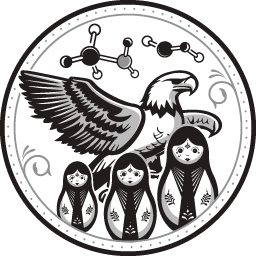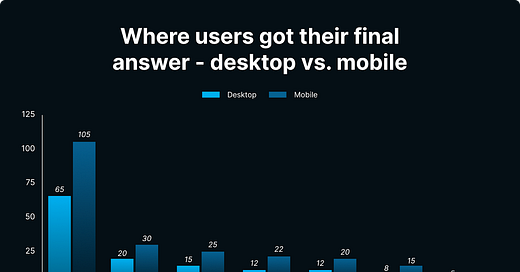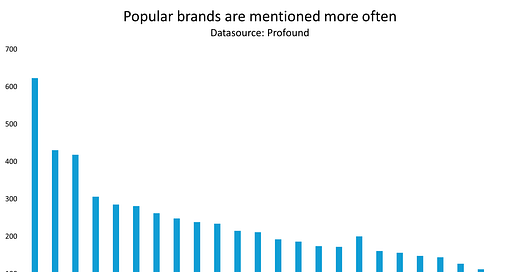
3 ways Growth teams self-sabotage
In this article, I introduce 3 ways in which Growth teams self-sabotage and how to remedy them.
Growth team optimization must be top of mind. 2022 turned out to be a cocktail of “quiet quitting”, manager burnout, layoffs and pressure to do more with less. These trends are driven by the pandemic, a shift from growth to recession, and the acceleration of remote work.
And yet, I see a lot of companies slowing their growth teams down, pushing people out and decreasing morale. The reason is not malevolence or a lack of trying but ”unintentional tort”. Another word is “collateral damage”. Executives and their teams - it’s a shared responsibility - accidentally shoot themselves in the food with certain behaviors.
In the church of self-sabotage, executives and teams commit 3 cardinal sins:
1. Flavor of the day
2. Endless scrutiny
3. Death by reorg
The remedy is clarity, accountability and a high bar for change.
Flavor of the day
“Flavor of the day” describes executives who constantly change their minds about priorities and expectations. They wanted X yesterday but Y today. By the way, the same can be said for teams that get excited about shiny new objects but actually need focus.
Though it’s easy to get excited about a lot of things - especially in Marketing and Growth - constant shuffling of priorities stalls progress, frustrates teams and creates an environment of uncertainty.
Paired with high expectations and accountability, team members quickly lose motivation. Most tech workers want to work on exciting projects and climb the career ladder. Changing priorities too quickly makes it difficult to show and experience progress.
The way to remedy the Flavor of the Day sin is getting alignment on priorities, setting quarterly goals and holding each other accountable for sticking to them. Roadmaps bring long-term stability into day-to-day execution - if you stick to them. The key is executive alignment on priorities and SMART (specific, measurable, achievable, realistic, timely) goals.
Another solution is dedicated planning and execution cycles. A quarter could end with a 2-week planning period, for example, and focus the remaining 10 weeks on execution. New ideas and priorities could only be surfaced in the 2-week planning time.
Endless scrutiny
Executives - and anyone else, for that matter - should ask probing for rigid thinking and strong execution. The goal of asking questions like “what’s the hardest part about this?” or “how high is your confidence that we’ll deliver in time?” is not to put people on the spot but to test the robustness of plans and arguments. Wes Kao wrote a great essay about rigorous thinking.
But too much of anything can be bad. The problem with too much scrutiny is the impression of constant dissatisfaction. If teams never get the feeling they meet the bar and cycle around problems, they disconnect from the mission.
The remedy is clearly defining success and expectations. When executives and teams know expectations ahead of starting a project, probing should drop to a minimum.
Another solution is to appoint a devil’s advocate for status check-in that intentionally plays the role of critic. When people play, they’re more open to different viewpoints than being caught by surprise. Sharing feedback ahead of meetings in written form is another approach.
Death by reorg
Agility is important in situations like market shifts, but too many reorganizations leave teams numb and confused. Reorgs are often the result of bad decision-making. Either new executives want to give the perception of change, or something is not going according to plan.
While the formation of organizations plays a big role in execution and org design is a skill in itself, executives tend to be too quick to use them. Just like people who start a new job, teams need to ramp up and “find themselves” when coming together. Every reshuffle of seats resets the ramp-up clock.
Another issue stemming from too many reorganizations is knowledge loss. When executing, teams collect knowledge like how important services work or how to best get stuff done that gets lost when key members leave the team.
The way around Death by reorg is setting a high bar for reorganizations and using them as a last resort. When reorgs are truly unavoidable, keeping project champions in place preserves knowledge and at least some stability.
Another remedy is pushing teams to document well and share information regularly (on Slack, in all-hands, and in product review meetings).
Progress builds on stability
Growth teams must be nimble and agile, but there is a limit. Self-sabotage begins when stability breaks apart.
When I asked my Twitter followers for their opinions about self-sabotaging, over 50 people shared their experiences.
The most common answers:
Chasing shiny objects
Too many meetings
Wasting time on unimportant things
Accepting constraints too quickly
Weak stakeholder management
Cherry-picking data
Working in silos
Hubris
Perfectionism
Lazy thinking
Sometimes, defining what to do is not as important as what not to do.








